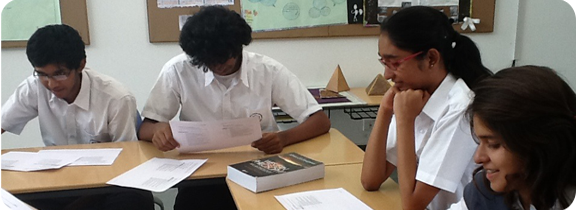
About the Academy
The Aga Khan Academy Dhaka is the fourth in the network of the Aga Khan Academies established by His Highness the Aga Khan.
The Academy features state-of-the-art facilities, a multicultural student body and an experienced team of educators and staff. We provide students with education of the highest standard in order to prepare them for lives characterised by leadership and service.
Admission to the Academy is competitive and based on student merit.
Mission statement
The following is the mission statement of the Aga Khan Academy Dhaka:
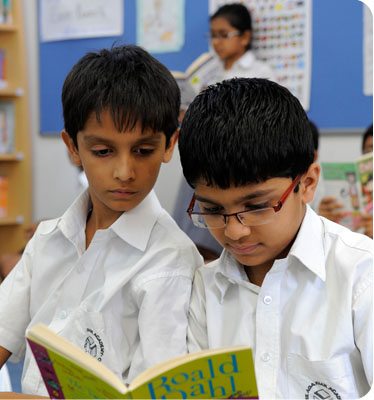 "The Academy will identify and nurture exceptional young people from any background with the potential to become effective, ethical leaders. It will be a joyful community of lifelong, fearless learners who are culturally-rooted and internationally-minded. Academy graduates will be reflective, compassionate, adventurous and creative citizens empowered as stewards to make a positive contribution in a changing world."
"The Academy will identify and nurture exceptional young people from any background with the potential to become effective, ethical leaders. It will be a joyful community of lifelong, fearless learners who are culturally-rooted and internationally-minded. Academy graduates will be reflective, compassionate, adventurous and creative citizens empowered as stewards to make a positive contribution in a changing world."
A culture of excellence
As with all the Aga Khan Academies, we are committed to excellence in all aspects of education. This commitment includes the academic curriculum as well as the campus where students live and learn.
Our campus is architect designed and purpose-built. It features state-of-the-art classrooms and resource areas, and extensive sports facilities. These outstanding facilities provide an inspiring environment for both students and staff.
At the Academy, we strive to create a balance between academic demands, sports, cultural activities, and community life. We challenge our students to be intellectually inquisitive and socially conscious. We also encourage them to respect and appreciate other people’s cultures, social structures, values and beliefs.
A rigorous academic programme
The network of Aga Khan Academies has developed its academic programme in line with the widely-recognised International Baccalaureate.
Following in the footsteps of its sister schools in Mombasa, Hyderabad and Maputo, the Aga Khan Academy Dhaka is pursuing authorisation as an IB World School.
The programme is designed to challenge students of all backgrounds.
Our aims for our students include:
- promoting academic excellence
- enhancing analytical and study skills
- building leadership skills
- fostering an ethical outlook and sense of civic responsibility
- developing an understanding of local context and global issues
- encouraging creativity.
Experienced local and international teachers lead our programmes. Faculty members are up-to-date with the best educational practices. They are committed both to their students’ learning and to their own continuing professional development.
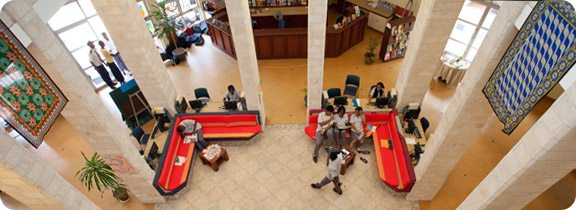
News
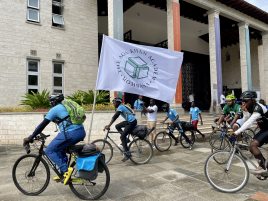
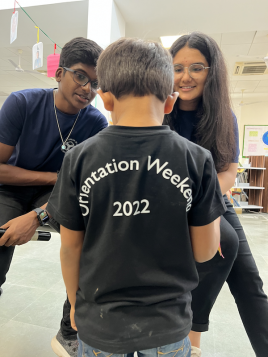
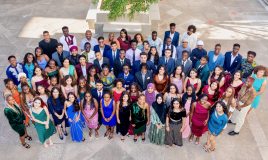

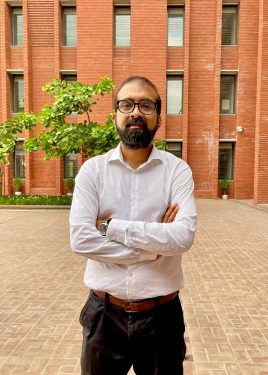
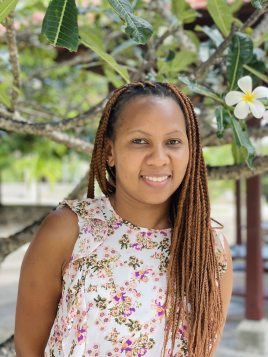
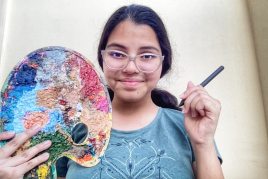
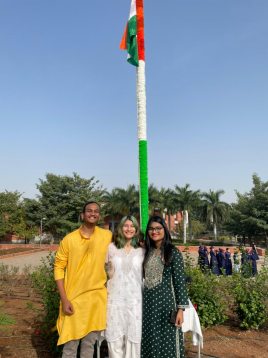
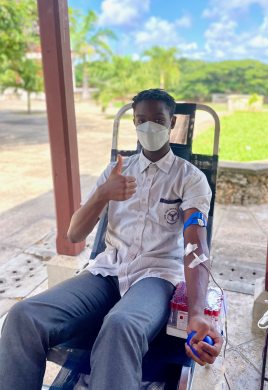
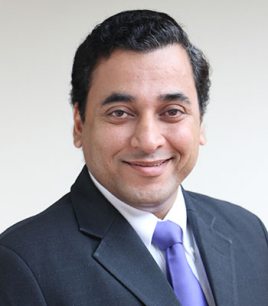
Pages
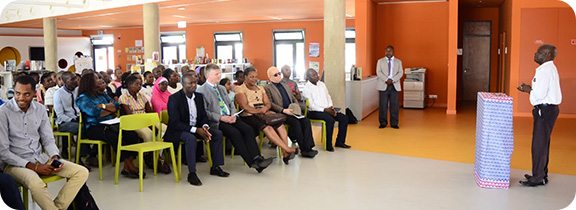
Outreach Programmes
In developing the Academy here in Mozambique, particular emphasis has been placed on community outreach and service.
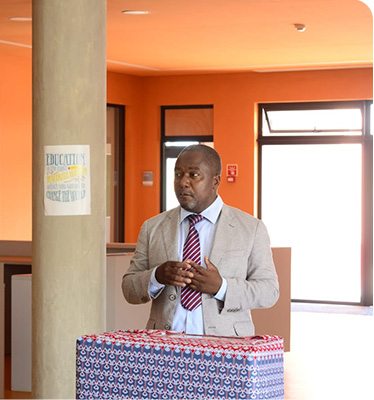 Through the Professional Development Centre concept, we have been promoting best practices in teaching and learning by providing ongoing training of teachers and head teachers from neighbouring government primary schools.
Through the Professional Development Centre concept, we have been promoting best practices in teaching and learning by providing ongoing training of teachers and head teachers from neighbouring government primary schools.
Two programmes are currently underway.
The first, in collaboration with the Aga Khan University's Institute for Educational Development, is an educational leadership and management programme leading to full recognition and certification for participants.
The second is a programme for teachers of English, designed to improve the teachers' language ability and also their classroom practice.
Currently, 17 schools and over 30 educators are involved in our programmes.
For more information on the Academies Outreach programme, visit our network website.
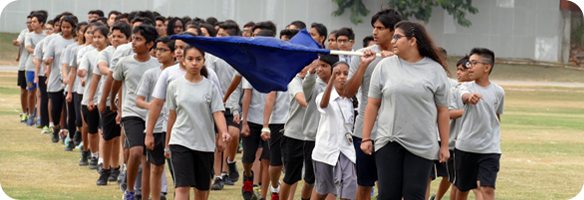
Diploma Programme
The Aga Khan Academy Hyderabad has received authorisation as an International Baccalaureate (IB) World School offering the IB Diploma Programme (DP). The programme is offered to students (aged 16–19) in the final two years of school.
The Diploma Programme is a demanding, pre-university-level course of studies. It is internationally recognised by over 2,000 universities worldwide.
The DP has a reputation for rigorous assessment of student achievement. Each student’s performance and levels of knowledge are examined internally by teachers according to set criteria. They are also assessed externally by independent examiners according to global standards applied to all IB schools.
Our students study all the subjects covered in a traditional, broad curriculum, including languages, social sciences, experimental sciences, mathematics and the arts. The DP also takes the curriculum a step further through three unique programmes:
- theory of knowledge
- creativity, activity, service
- extended essay.
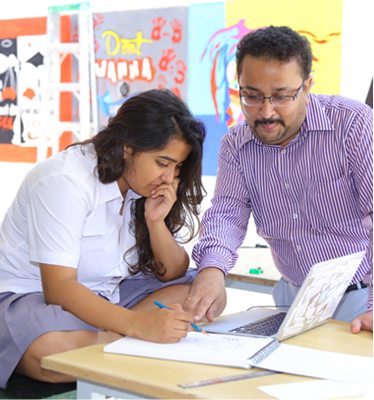 Theory of knowledge
Theory of knowledge
Theory of knowledge (TOK) is an interdisciplinary requirement unique to the International Baccalaureate Diploma Programme. It encourages students to reflect on the knowledge they gain both inside and outside the classroom.
One hundred hours of classroom time are dedicated to the TOK programme. We challenge our students to question the nature of knowledge across disciplines, to recognise biases and to analyse evidence using rational thought and argument. By making our students consider and appreciate different perspectives, TOK contributes towards a pluralistic outlook.
Creativity, activity, service
Creativity, activity, service (CAS) is an important component of the IB curriculum and is required for every DP student at the Academy. Our students participate actively in a variety of creative endeavours, physical activities and community service projects. They develop self-confidence, teamwork and leadership skills, and a sense of civil responsibility.
Students take part in sustainable projects that have real and lasting effects on the greater Hyderabad community. They develop strength of character and an understanding of their ability to bring about change.
The CAS programme is valued for its power to transform the lives not only of students but also the people they work with. It serves as a platform for interpersonal exchange, personal growth and greater understanding of the issues we face as a global community.
Extended essay
The extended essay requires students to pick a subject of their choice and research and develop it into a 4,000-word essay. Students may choose to investigate a subject from one of their higher-level courses more deeply. Or they can broaden their academic experience by researching a subject in a field they are not currently studying.
Through the extended essay, we introduce students to the kind of independent research and writing skills expected at the university level.
For further information on the IB Diploma Programme at the Academy, please see the admission requirements or contact us.
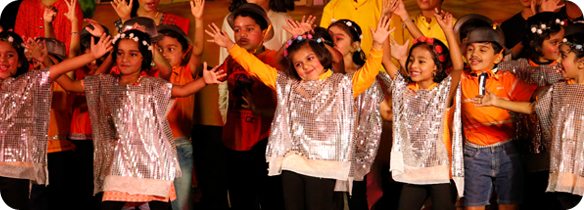
Primary Years Programme
The Junior School of the Aga Khan Academy Hyderabad is an International Baccalaureate World School and has been authorised for the Primary Years Programme (PYP).
Foundations for lifelong learning
We offer the PYP for students in grades 1–5 (aged 6–10). The programme focuses on the development of the whole child. It is geared towards creating independent, confident and respectful learners.
Our classroom curriculum addresses the children's social, physical, cultural and ethical development while giving them a strong foundation in all the major areas of knowledge.
The curriculum consists of five essential elements:
- concepts
- knowledge
- skills
- attitude
- action.
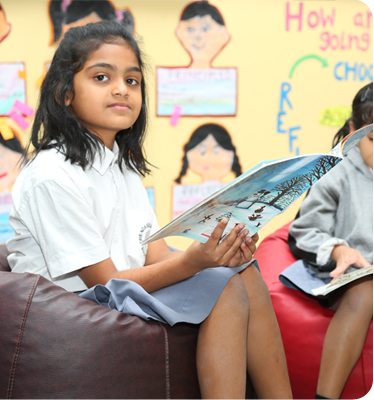 The core subjects we cover include English language, mathematics, social studies, science and technology. Our programme also includes a beginning computing course, physical education, music, art and Hindi.
The core subjects we cover include English language, mathematics, social studies, science and technology. Our programme also includes a beginning computing course, physical education, music, art and Hindi.
Students and teachers explore questions in all subject areas using an interactive, student-centred approach. The knowledge element of the curriculum is enhanced by six themes that are studied across the various subject disciplines. These are:
- who we are
- where we are in place and time
- how we express ourselves
- how the world works
- how we organise ourselves
- sharing the planet.
These transdisciplinary themes of global significance are addressed through six units of inquiry at each grade level, and this forms the school’s programme of inquiry. The programme of inquiry is the conceptual curriculum framework for the PYP. The transdisciplinary themes ensure that they are "revisited throughout the students’ years of PYP so that they are immersed in broad ranging, in-depth, articulated curriculum content” (Making the PYP Happen: A curriculum framework for international primary education).
The PYP develops well-rounded students who are well versed in all areas of knowledge. They learn to be intellectually curious, principled, caring, open-minded, well balanced and reflective learners.
Please visit the Admission Requirements page or contact us to find out more about applying to the PYP at the Academy.
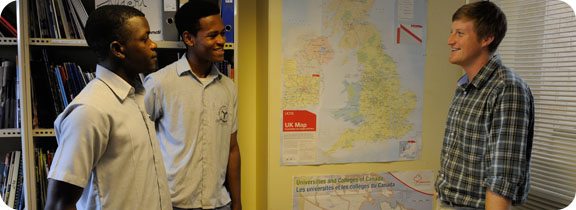
Diploma Programme
The Aga Khan Academy Mombasa has been an International Baccalaureate (IB) World School since May 2005. We offer the IB Diploma Programme (DP) to students in the final two years of school (aged 16–19).
The Diploma Programme is a demanding, pre-university-level course of studies. It is internationally recognised by over 2,000 universities worldwide.
The DP has a reputation for rigorous assessment of student achievement. Each student’s performance and level of knowledge are examined internally by teachers according to set criteria. They are also assessed externally by independent examiners according to global standards applied to all IB schools.
Our students study all the subjects covered in a traditional, broad curriculum, including languages, social sciences, experimental sciences, mathematics and the arts. The DP also takes the curriculum a step further through three unique programmes:
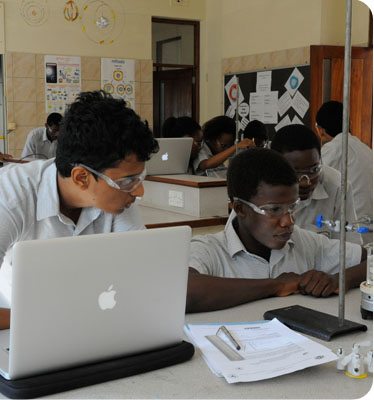
- Theory of knowledge
- Creativity, activity, service
- Extended essay
Theory of knowledge
Theroy of knowledge (TOK) is an interdisciplinary requirement unique to the International Baccalaureate Diploma Programme. It encourages students to reflect on the knowledge they gain both inside and outside the classroom.
One hundred hours of classroom time are dedicated to the TOK programme. We challenge our students to question the nature of knowledge across disciplines, to recognise biases and to analyse evidence using rational thought and argument. By making our students consider and appreciate different perspectives, TOK contributes towards a pluralistic outlook.
Creativity, activity, service
Creativity, activity, service (CAS) is an important component of the IB curriculum and is required for every DP student at the Academy. Our students participate actively in a variety of creative endeavours, physical activities and community service projects. They develop self-confidence, teamwork and leadership skills, and a sense of civil responsibility.
Students take part in sustainable projects that have real and lasting effects on the greater Mombasa community. They develop strength of character and an understanding of their ability to bring about change.
The CAS programme is valued for its power to transform the lives not only of students but also the people they work with. It serves as a platform for interpersonal exchange, personal growth and greater understanding of the issues we face as a global community.
Extended essay
For the extended essay, we require students to pick a subject of their choice and research and develop this subject in a 4,000-word essay. Students may choose to investigate a subject from one of their higher-level courses more deeply. Or they can broaden their academic experience by researching a subject in a field they are not currently studying.
Through the extended essay, we introduce students to the kind of independent research and writing skills expected at the university level.
For further information on the IB Diploma Programme at the Academy, please see the admission requirements or contact us.
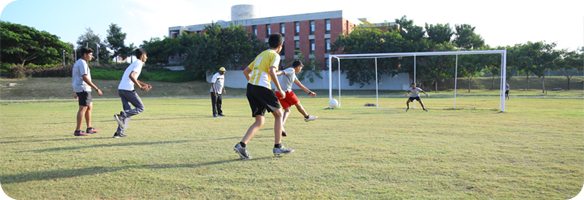
Enrichment Programme
The enrichment programme enables students to realise their potential in a variety of settings beyond the classroom. Students develop a sense of self-awareness and an understanding of school and community needs and opportunities. They also learn how to apply their gifts and skills to make a positive impact.
At the Academy, we believe in a balanced, rounded, comprehensive school experience. As this includes both academic and enrichment experiences, we encourage our students to do their best both in and outside the classroom.
We offer outstanding sports facilities that include:
- swimming and diving pools
- cricket pitch
- sports fields, for soccer, hockey and athletics
- tennis and squash courts
- athletics track.
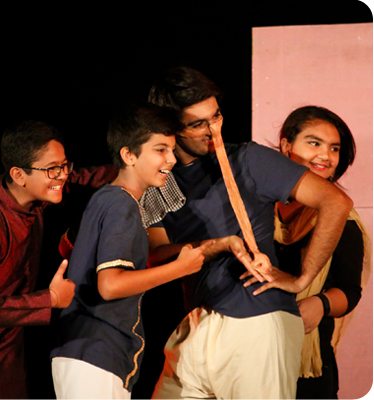 Children with special sporting gifts are encouraged to develop their talents in every way. Children with special gifts in music, art or drama are similarly encouraged through opportunities to practise and perform while at the Academy.
Children with special sporting gifts are encouraged to develop their talents in every way. Children with special gifts in music, art or drama are similarly encouraged through opportunities to practise and perform while at the Academy.
Our enrichment programmes for both day and residential students are clustered into three main streams, each with a different focus:
Creativity and culture
Whether through visual or performing arts, this cluster engages students to think creatively and express their identities and thoughts aesthetically. Through theatre, art, music and drama, students learn to work together and infuse their projects with values and lessons from other parts of their schooling. Individual and collaborative creative projects emphasise growth and development through personal challenge, ultimately resulting in achievable personal goals.
Programmes are currently offered in contemporary dance, arts and crafts, animation, robotics, science, software, photography, chess, drama and music.
Physical
The student as a reflective practitioner is a basic tenet of the physical cluster. Through physical sport, both competitive and non-competitive, students are challenged in their physical growth, and learn values such as good sportsmanship, teamwork and ethical behaviour. We encourage them to extend themselves by trying different activities and working with teammates to pass on their knowledge. In line with developing the student as a whole, a healthy lifestyle complements and enhances academic achievement.
Programmes are currently offered in football, squash, basketball, cricket, swimming, table tennis, tennis and yoga/gym.
Language and service
At the Academy, we encourage knowledge and understanding of humanity and civil society. Through their involvement in citizenship activities, students gain an understanding of the practical implications of their work and study. By collaborating with community groups on sustainable projects, they develop an appreciation for human rights and human dignity, and of how their actions impact the world around them.
Programmes are currently offered in Model United Nations, Reflections (school publication), yearbook, organic farm, film making, book club, foreign language and mother tongue, and environment club.
To learn more about the Academy's programme, please visit the Academic Programme page.

Diploma Programme
The Aga Khan Academy Dhaka is an International Baccalaureate (IB) authorised World School and has been authorised for the Diploma Programme (DP). The DP is a demanding, pre-university-level course of studies. It is internationally recognised by over 2,000 universities worldwide.
The DP has a reputation for rigorous assessment of student achievement. Each student’s performance and levels of knowledge are examined internally by teachers according to set criteria. They are also assessed externally by independent examiners according to global standards applied to all IB schools.
Our students study all the subjects covered in a traditional, broad curriculum, including languages, social sciences, experimental sciences, mathematics and the arts. The DP also takes the curriculum a step further through three unique programmes:
- Theory of knowledge;
- Creativity, activity, service; and
- Extended essay.
 Theory of knowledge
Theory of knowledge
Theory of knowledge (TOK) is an interdisciplinary requirement unique of the DP. It encourages students to reflect on the knowledge they gain both inside and outside the classroom.
One hundred hours of classroom time are dedicated to the TOK programme. We challenge our students to question the nature of knowledge across disciplines, to recognise biases and to analyse evidence using rational thought and argument. By making our students consider and appreciate different perspectives, TOK contributes towards a pluralistic outlook.
Creativity, activity, service
Creativity, activity, service (CAS) is an important component of the IB curriculum and is required for every DP student at the Academy. Our students participate actively in a variety of creative endeavours, physical activities and community service projects. They develop self-confidence, teamwork and leadership skills, and a sense of civil responsibility.
Students take part in sustainable projects that have real and lasting effects on the greater Dhaka community. They develop strength of character and an understanding of their ability to bring about change.
The CAS programme is valued for its power to transform the lives not only of students but also the people they work with. It serves as a platform for interpersonal exchange, personal growth and greater understanding of the issues we face as a global community.
Extended essay
The extended essay (EE) requires students to pick a subject of their choice and research and develop it into a 4,000-word essay. Students may choose to investigate a subject from one of their higher-level courses more deeply. Or they can broaden their academic experience by researching a subject in a field they are not currently studying.
Through the EE, we introduce students to the kind of independent research and writing skills expected at the university level.
For further information on the IB Diploma Programme at the Academy, please see the admission requirements or contact us.
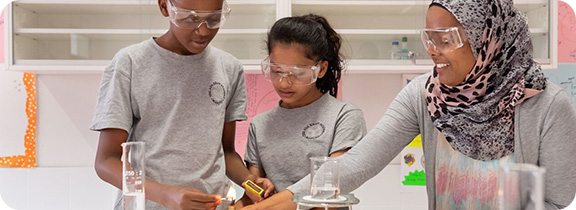
Middle Years Programme
The Aga Khan Academy Maputo is a Candidate School* for the Diploma Programme. The Academy is pursuing authorisation as an IB continuum school. These are schools that share a common philosophy — a commitment to high quality, challenging, international education that the believes is important for our students.
What is the MYP?
The MYP is a challenging and exciting inquiry-based curriculum that actively engages students in their learning by encouraging them to make connections between what they study and the wider world. The five-year programme offers students access to a curriculum that is broad and balanced, conceptual and connected. What matters is not absorbing facts that can be repeated but developing ways of thinking that can be applied to new situations.
There are 8 subject groups within the MYP. Here at the Aga Khan Academy in Maputo our students study Portuguese and English language and literature, Portuguese, English and, in MYP3, French language acquisition, humanities, sciences, mathematics, visual arts, design and physical and health education.
In addition to the academic subjects our MYP students also develop leadership skills, library research skills and initiate and participate in service with the community.
In the final year of the programme students complete a personal project that encourages them to strengthen their approaches to learning skills, consolidate prior and subject-specific learning and develop an area of personal interest. In the context of the Aga Khan mission, vision and values it also develops awareness of a community need and seeks to address it in a meaningful way. The personal project is challenging, motivational and interesting as each student develops a personal project independently.
MYP Learners
The MYP promotes open communication, based on mutual understanding and respect. It encourages students to become active, compassionate lifelong learners. The programme is holistic and as such is concerned with developing the whole person. Along with cognitive development, the programme addresses students’ social, emotional and physical well-being. Students are encouraged to become active and caring members of local, national and international communities who respect themselves, others and the world around them. They develop effective communication skills, social skills, self-management skills, research skills and thinking skills that will enable them to adapt to a range of contexts, as they make their way through life.
Assessment for learning
Teachers use a variety of assessment strategies to address the MYP subject-group objectives. The assessment for learning tasks include, among other things compositions, creating solutions or products in response to problems, essays, examinations, investigations, questionnaires, research tasks, performances, presentations, research task and reports.
In the fifth and final year of the MYP, to be eligible for the internationally recognized MYP certificate students must successfully complete eight eAssessments:
On-screen examinations in:
- Language and literature
- Individuals and societies (Humanities)
- Sciences
- Mathematics
- Interdisciplinary learning
ePortfolios (coursework) in:
- language acquisition
- physical and health education, arts or design
- the personal project
Students must also meet the school’s expectations for service and action.
The MYP bilingual certificate additionally requires successful results from on-screen examinations of:
A second language and literature instead of a course in language acquisition
The maximum total score for the IB MYP certificate is 56, with a grade from 1-7 assigned to each required eAssessment.
Students must achieve a total of at least 28 points, with a grade of ‘3’ or higher n each eAssessment component, to be eligible to receive the MYP certificate.
Transition to the IB Diploma (DP)
MYP subject groups form an important common foundation for all students and provide strong alignment with the six subject groups in the DP which follows. The two year DP course encourages depth and breadth of learning and builds on students’ prior learning experiences. This encourages them to become confident, independent learners. It also encourages students to develop their critical thinking skills, self-management and global mindedness. Further, research carried out on behalf of the IB demonstrates that successful DP graduates are much more likely to be enrolled at top higher education institutions than entrants holding other qualifications.
Please visit the Admission Requirements page or contact us to find out more about applying to the MYP programme at the Academy.
*Only schools authorised by the IB Organization can offer any of its four academic programmes: the Primary Years Programme (PYP), the Middle Years Programme (MYP), the Diploma Programme, or the Career-related Programme (CP). Candidate status gives no guarantee that authorisation will be granted. For further information about the IB and its programmes, visit http://www.ibo.org.
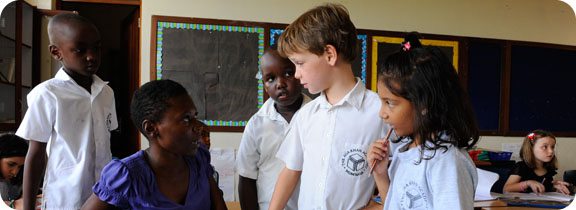
Primary Years Programme
The Aga Khan Academy Mombasa was authorised to offer the Primary Years Programme (PYP) curriculum by the International Baccalaureate in April 2007.
Foundations for lifelong learning
We offer the PYP for students in years 1–5 (aged 6–10). The programme focuses on the development of the whole child. It is geared towards creating independent, confident and respectful learners.
Our classroom curriculum and after-school activities address the children's social, physical, cultural and ethical development while giving them a strong foundation in all the major areas of knowledge.
The curriculum consists of five essential elements:
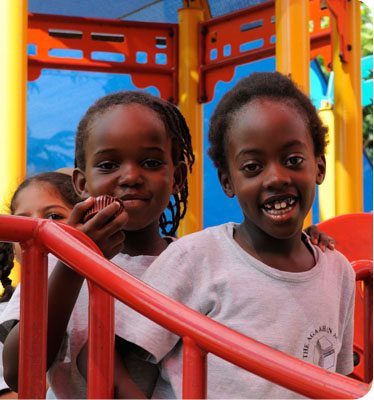
- Concepts
- Knowledge
- Skills
- Attitude
- Action
The core subjects we cover include English language, mathematics, social studies, science and technology. The Primary Years Programme at the Aga Khan Academy Mombasa also includes a beginning computing course, physical education, music, art and Kiswahili.
Students and teachers explore questions in all subject areas using an interactive, student-centred approach. The knowledge element of the curriculum is enhanced by six themes that are studied across the various subject disciplines. These are:
- Who we are
- Where we are in place and time
- How we express ourselves
- How the world works
- How we organise ourselves
- Sharing the planet
The PYP develops well-rounded students who are well versed in all areas of knowledge. They learn to be intellectually curious, principled, caring, open-minded, well balanced and reflective learners.
Please click here to learn more about the PYP Exhibition, which takes place in year 5. The Exhibition is a capstone experience for each PYP student.
Please visit the Admission Requirements page or contact us to find out more about applying to the PYP at the Academy.
